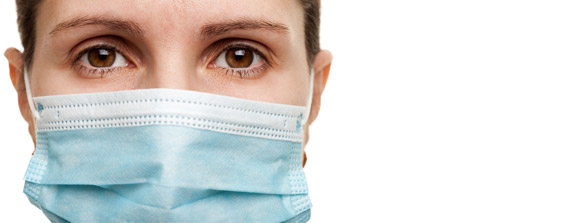
|
TORONTO: 416-564-2054 | NEWMARKET: 289-841-3341
| BARRIE: 705-294-1544 |
| Home | About | Services | Request Quote | Contact |
Bacterial Screenings For Sewer Back-upOften referred to as “germs”, bacteria are microscopic organisms that are present in water, soil and air, on and in animals, plants and man; they are smaller than mould spores but larger than viruses. Bacteria are everywhere. We would not be able to survive without some of them, but other cause disease, illness and in severe cases may result in death. Concern over bacterial contamination arises when the client experiences an episode of sewage backup. The concern increases if prompt and competent cleaning is not performed. The longer the time lapse between response the greater the amplification of bacteria and mould. Bacterial pathogens in sewage can include virulent strains of gram-negative organisms such as Salmonella, Shingella, and Escherichia coli. Over 120 different viruses can be excreted in human feces and urine and can be found in municipal sewage. Sewage also constitutes a tremendous source of bacterial endotoxins that can induce a variety of adverse health effects. Endotoxins can cause respiratory inflammation and airway restriction, and create the potential for allergic and infectious disease responses. There is also evidence that inhaled endotoxins may adversely influence the central nervous system. Risk to the public’s health from sewage exposure was demonstrated in a 1988-89 epidemic of Hepatitis A in Ocoee, Florida, in which 39 persons were infected and a fetal death. Persons exposed to sewage are at risk of chronic respiratory disease, other systemic health effects, and a host of acute and chronic bacterial, fungal, viral, and parasitic diseases. The viruses contained in sewage include rotavirus, causing severe and sometimes life-threatening diarrhea in children, adenoviruses, causing respiratory and eye infections, and Norovirus, a significant cause of gastroenteritis. Parasitic agents include the highly infectious Giardia that can result in chronic and severe intestinal disease in both adults and children The Institute of Inspection Cleaning and Restoration Certification (IICRC) is the industry’s leading organization that publishes the standards of practice to be used as a guideline by emergency response contractors for the safe and proper cleaning of sewage back-up. These standards are S500 - Water Restoration Guidelines and S520 - Standard and Guidelines for Professional Mould Remediation. The staff at Assurance Environmental Inspection Services Inc. has in-depth knowledge of the S500 as well as the S520 by obtaining certification through the IICRC as Water restoration Technician (WRT) and Applied Microbial Remediation Technician (AMRT). Generally, the client contacts their insurance company upon discovering a flood or sewer backup who then dispatches a “preferred” emergency response contractor to clean up and remove damaged material. Completion of work and verification clearance testing is conducted by these contractors using very basic testing equipment that often produces false results. Assurance Environmental Inspection Services Inc. provides quality services and testing to ensure that conditions have been returned to an acceptable pre-loss state. By using an independent third party lab, the client is assured that their best interests are being protected; clearance reports are unbiased based on scientific data obtained from laboratory sample analysis. |

 |
 |
 |
Proud Certified Members for Over 15 Years. |


|
Assurance Environmental Inspection Services has been selected as the 2018 Consumer Choice Award winner in the category of Asbestos Removal in Barrie. |

|
Other Services
> Vermiculite Inspection > Marijuana Grow Operations > Assessment/Clearance > Hazardous Materials > Bacterial Screening > Complete Indoor Air Quality Audits |
Residential & Commercial Air Quality Experts
Proudly Serving Toronto, GTA, Vaughan, Newmarket, Richmond Hill, Barrie, Orillia, Collingwood, Keswick, Midland and Surrounding Areas.
|
Contact Us
|




